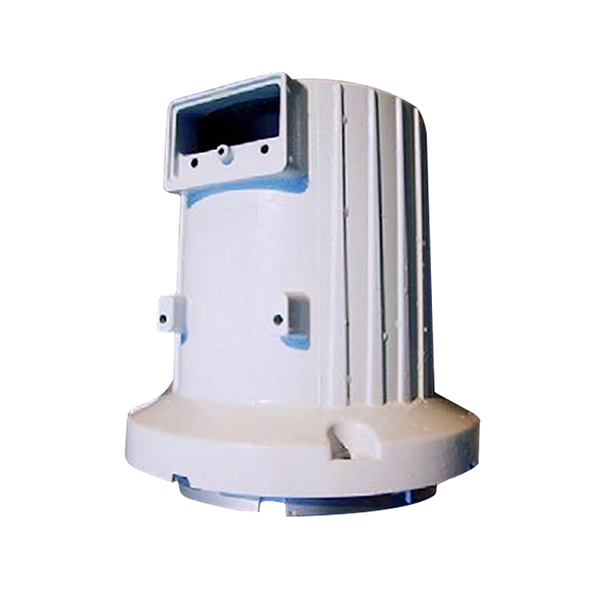Mobile:+86-311-808-126-83
Email:info@ydcastings.com
Stainless Steel Cast Molding Techniques for Precision and Durability in Manufacturing
Stainless Steel Casting Molds An Overview
Stainless steel casting molds are an integral part of the manufacturing process for various industries, including automotive, aerospace, marine, and consumer goods. Casting, as a method to shape metal into desired forms, involves pouring molten metal into a pre-designed mold which then solidifies to create the end product. The use of stainless steel in these molds brings several advantages that make it a preferred material in many applications.
Advantages of Stainless Steel Casting Molds
1. Durability and Longevity One of the most significant benefits of stainless steel casting molds is their durability. Stainless steel is resistant to corrosion, oxidation, and tarnishing, which ensures that molds maintain their integrity even under extreme temperatures and harsh environments. This resistance extends the lifespan of molds, reducing the need for frequent replacements and consequently lowering production costs.
2. Temperature Resistance Stainless steel has excellent thermal properties, allowing it to withstand the high temperatures associated with casting processes. This characteristic is crucial when dealing with molten metals, as it prevents the mold from warping or degrading during production. Furthermore, molds made from stainless steel can provide better heat retention, which can be advantageous in achieving uniform cooling of cast products.
3. Precision and Accuracy The manufacturing techniques used to create stainless steel molds often result in high precision and tight tolerances. This accuracy is essential in many industries where even the slightest variation can lead to significant performance issues. The ability to produce intricate designs with consistent quality makes stainless steel molds especially valuable in high-demand applications.
4. Ease of Maintenance Stainless steel molds are relatively straightforward to maintain. Their smooth surfaces make them easy to clean, preventing the buildup of residues that can affect casting quality. Additionally, the non-reactive nature of stainless steel minimizes contamination risks, ensuring the purity of the materials being cast.
5. Versatility Stainless steel molds can be fabricated into various shapes and sizes, making them suitable for a wide range of products. From complex engine components in the automotive industry to everyday items like kitchenware, the versatility of stainless steel casting molds makes them a popular choice across diverse sectors.
stainless steel casting molds

Applications of Stainless Steel Casting Molds
Stainless steel casting molds find applications in numerous fields. In the automotive sector, these molds are used to produce engine blocks, gears, and transmission components, all of which require high strength and corrosion resistance. Aerospace manufacturers utilize stainless steel molds to create parts that can withstand extreme conditions, including engine components and structural supports.
In the marine industry, stainless steel's resistance to saltwater makes it an ideal choice for casting molds used in producing parts for boats and ships. Similarly, the food and beverage industry benefits from stainless steel's non-reactive properties, ensuring that molds used for utensils, cookware, and processing equipment maintain safety and hygiene standards.
Future Trends
As industries continually evolve, the demand for advanced materials and manufacturing technologies is expected to rise. The development of new stainless steel alloys with enhanced properties could lead to further improvements in mold performance. Additionally, advancements in manufacturing processes, such as 3D printing and additive manufacturing, may allow for more complex mold designs and faster production times.
Environmental considerations are also becoming increasingly important. As industries strive to reduce their carbon footprint, the development of more sustainable casting processes and materials, including recyclable stainless steel, is likely to play a significant role.
Conclusion
Stainless steel casting molds represent a crucial component in the manufacturing landscape, providing durability, precision, and versatility across various industries. As technology advances and the demand for high-quality products continues to grow, these molds will play an essential role in meeting the challenges of modern manufacturing. The ongoing innovations in materials and processes promise a bright future for stainless steel casting molds, ensuring they remain a vital element in producing the components required in our increasingly complex world.
-
Impeller Technology That Powers Precision in Pump SystemsNewsMay.22,2025
-
Valve Durability Begins with Quality Cast Iron ComponentsNewsMay.22,2025
-
Performance Cooling with Advanced Automobile Water Pump SolutionsNewsMay.22,2025
-
How Motor Housing and Oil Pans Shape Engine PerformanceNewsMay.22,2025
-
How Metal Castings Drive Modern Manufacturing EfficiencyNewsMay.22,2025
-
Exploring the Engineering Behind Valve Body CastingsNewsMay.22,2025











